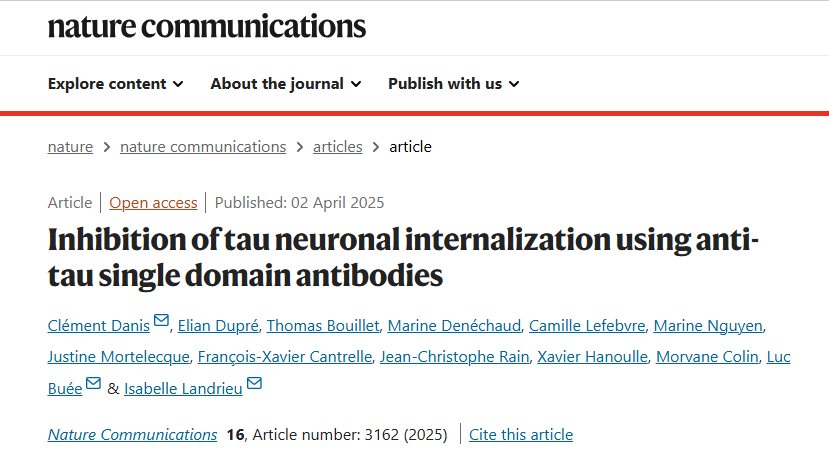Blocking Tau Internalization: How Single-Domain Antibodies Could Help Combat Alzheimer's Disease

Alzheimer’s disease (AD) is characterized by the progressive spread of tau pathology across different brain regions. This pathological process is driven by tau protein transmission, where intracellular tau is released and taken up by neighboring neurons. Targeting this mechanism could open new doors for therapeutic intervention.
Single-Domain Antibodies as Tau Inhibitors
Recent research has explored the use of single-domain antibodies (VHHs) to prevent tau internalization, offering a promising strategy to slow disease progression. In this study, three VHH antibodies—A31, H3-2, and Z70mut1—were identified as effective inhibitors of tau uptake. These antibodies work by competing with LRP1, a key membrane receptor responsible for neuronal tau internalization.
How Do These VHHs Work?
A31 and Z70mut1 bind to the microtubule-binding domain of tau, interfering with its interaction with LRP1.
H3-2 stands out as the only VHH that blocks the uptake of both monomeric tau and tau fibrils. It binds to a C-terminal epitope of tau with high affinity, forming a unique VHH-swapped dimer when complexed with tau peptides.
Potential Applications in Tauopathies
These anti-tau VHHs not only serve as valuable research tools for studying tau prion-like propagation, but they also hold potential for the development of novel biotherapeutics targeting tauopathies, including Alzheimer’s disease. By disrupting tau internalization, these antibodies could contribute to strategies aimed at slowing neurodegeneration.
Advancing Tau-Targeted Therapies
As the field of VHH antibody discovery continues to expand, innovative approaches like these offer new hope in the fight against neurodegenerative diseases. With their small size, high specificity, and unique binding properties, VHH antibodies represent a powerful class of molecules for next-generation therapeutic development.
Would you like to explore how VHH technology can drive breakthroughs in your research? Contact AlpalifeBio today to learn more!
Reference: nature communications